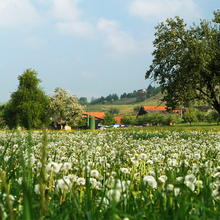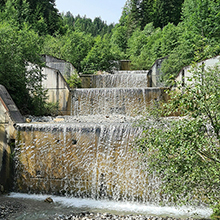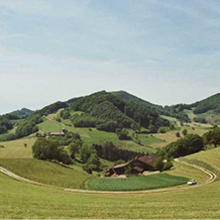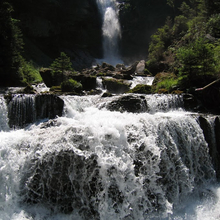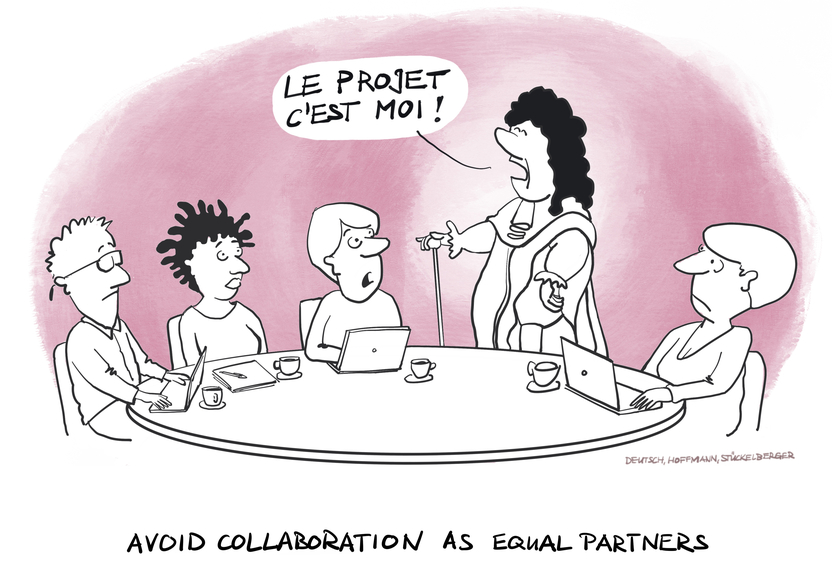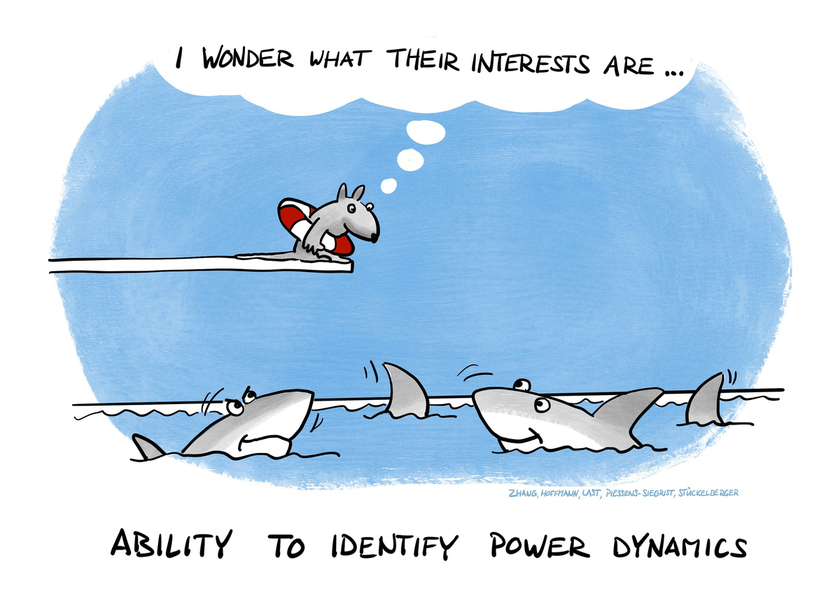Department Environmental Social Sciences
Inter- and Transdisciplinary Research (ITD)
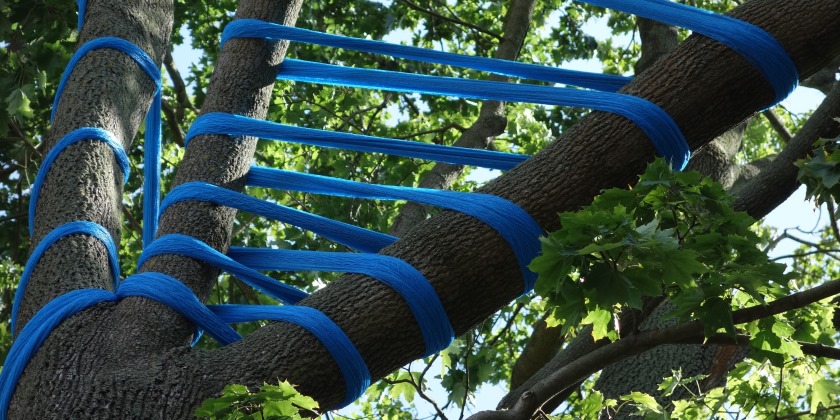
Meeting pressing complex societal challenges of our time such as climate change, food security, or biodiversity loss, requires inter- and transdisciplinary (ITD) research that crosses boundaries of not only different scientific disciplines but also research, policy, and practice. Integration across such boundaries is widely regarded as the key challenge of ITD research. Yet, it is critical to the success or failure of ITD projects and programs.
What is inter- and transdisciplinary research?
Interdisciplinary research means collaboration between several scientific disciplines with the aim of answering a common research question which, due to its complexity, cannot be answered by one discipline alone. While multidisciplinary research does not involve integration of the disciplines involved, interdisciplinary research aims at addressing such a question in a more holistic way by integrating different disciplinary perspectives and creating a coherent and comprehensive whole that is more than the sum of its parts. Transdisciplinary research goes one step further and refers to the co-production of knowledge between an interdisciplinary research team and actors from policy and practice. Thereby, more societally relevant and socially robust solutions are developed.
Research focus
We refer to integration as a process of combining a wide range of perspectives from different disciplines (i.e., interdisciplinary integration), as well as from research, policy, and practice (i.e., transdisciplinary integration). This process can involve cognitive, social, and emotional dimensions. We also refer to integration as the integrated output that emerges from this process. It is widely regarded as both the key feature and the core challenge of inter- and transdisciplinary (ITD) research, while also being considered critical to the success (or failure) of such research projects or programs. In sight of the inherent complexity to be managed in ITD projects or programs, it needs proactive, adaptive and integrative leadership models for ITD research to be successful. Thus, our research addresses the following research questions:
- What conditions foster or hinder ITD integration in ITD projects and programs, as well as in research organizations as a whole? How? Why?
- Which challenges do leaders and researchers in ITD projects and programs experience in terms of integration? What strategies, practices, and tools do they employ to address these challenges?
- Which challenges do early career researchers face in ITD projects and programs? How can they be supported in their work at the interface between research, policy and practice?
- What roles do leaders and researchers play in ITD projects and programs? What competencies do they need? How can these leaders and researchers be equipped with necessary competencies?
Scientific publications
Practice-orientated outputs
Inter- and transdisciplinary research
Dettwiler, D., Deutsch, L. and Hoffmann, S. (2024) Strategies to strengthen inter- and transdisciplinarity in your research organization. Eawag, Dübendorf
Aeschiried Integrators (2023). ). Towards a theory of change to institutionalise integration experts and expertise, Integration and Implementation Insights
Deutsch, L., Hoffmann, S. (2023): Integration in inter- and transdisciplinary research: how can the leadership challenges be addressed? In: Integration and Implementation Insights, Blog Post
Deutsch, L, Hoffmann, S. (2022): Geht das, verschiedene Perspektiven für eine Nachhaltigkeitstransformation unter einen Hut zu bekommen? – Einblicke in den Ansatz „Theory of Change“, ISOE Blog Post
Deutsch, L, Hoffmann, S. (2021): Developing Theories of Change for supporting transformations in the urban water sector. Lessons learned from an inter- and transdisciplinary research program. Swiss Academies of Arts and Sciences: td-net toolbox for co-producing knowledge, Practice Report
Sustainability Transformations
Hofmann, B. & Ingold, K. (2023). Protect water from pesticides by focusing on how people use knowledge, Water Science Policy
Hofmann, B. (2023). Small green firms beat big polluters in clean shipping negotiations, TheLoop: ECPR's Political Science Blog
Hofmann, B.; Ingold, K. (2023). Barriers to evidence use for sustainability: the pesticide case, European Commission "Knowledge for Policy" Blog
Knowledge Brief ‘Deutsch L, Beutler P, Binz C, Congiu G, Contzen C, Heiberg J, Hoffmann S, Kollman J, Maurer M, Morgenroth E, Pakizer K, Reymond P, Schelbert V, Truffer B, Van den Brandeler F (2023) Resource-oriented wastewater infrastructures for sustainable cities: ways forward. Wings Knowledge Brief No. 1. Eawag, Dübendorf
Knowledge Brief ‘Wainaina GK, Lüthi C, Deutsch L, Narayan AS, van Welie M, Cherunya PC, Hoffmann S (2023) Planning to transform: How to increase the effectiveness of infrastructure interventions in slumsWings Knowledge Brief No. 2. Eawag, Dübendorf
Hofmann, B.; Ingold, K.; Stamm, C.; Finger, R.; Hoffmann, S. (2022). Hürden für eine evidenzbasierte Pflanzenschutzmittelpolitik und -praxis, Agrarpolitik-Blog, Progressive Agrarwende
Narayan, A.S., Deutsch, L., Hoffmann, S., Pearce, B.J. (2020): Decentralisation: Are we on the same page? An interdisciplinary Workshop Brief, No. 1, Eawag, Dübendorf
Networks
Team
Teaching
Integration in Science, Policy and Practice: Inter- and Transdisciplinary Concepts, Methods, Tools, ETH Zürich, Department of Environmental Systems Science. annual course, 701-1571-00L, spring semester.
Global Environmental Politics, University St.Gallen. Jährlicher Kurs, 7,379,1.00, fall semester.
Transdisciplinary project week in the Minor Transformation Arts Sciences, Zurich University of Arts, MA Transdisciplinarity in the Arts, Department of Cultural Analysis and Mediation. Annual course, MTR-MTR-1009C.24F.005, spring semester.
Current projects
Completed projects
Collaboration Partners
EMPA, EPFL, ETH Zürich (D-USYS, D-BAUG, WFSC, PSC), FiBL, Swiss TPH, TdLab ETH Zürich, Universität Bern, Universität Konstanz, WSL, ZHdK







